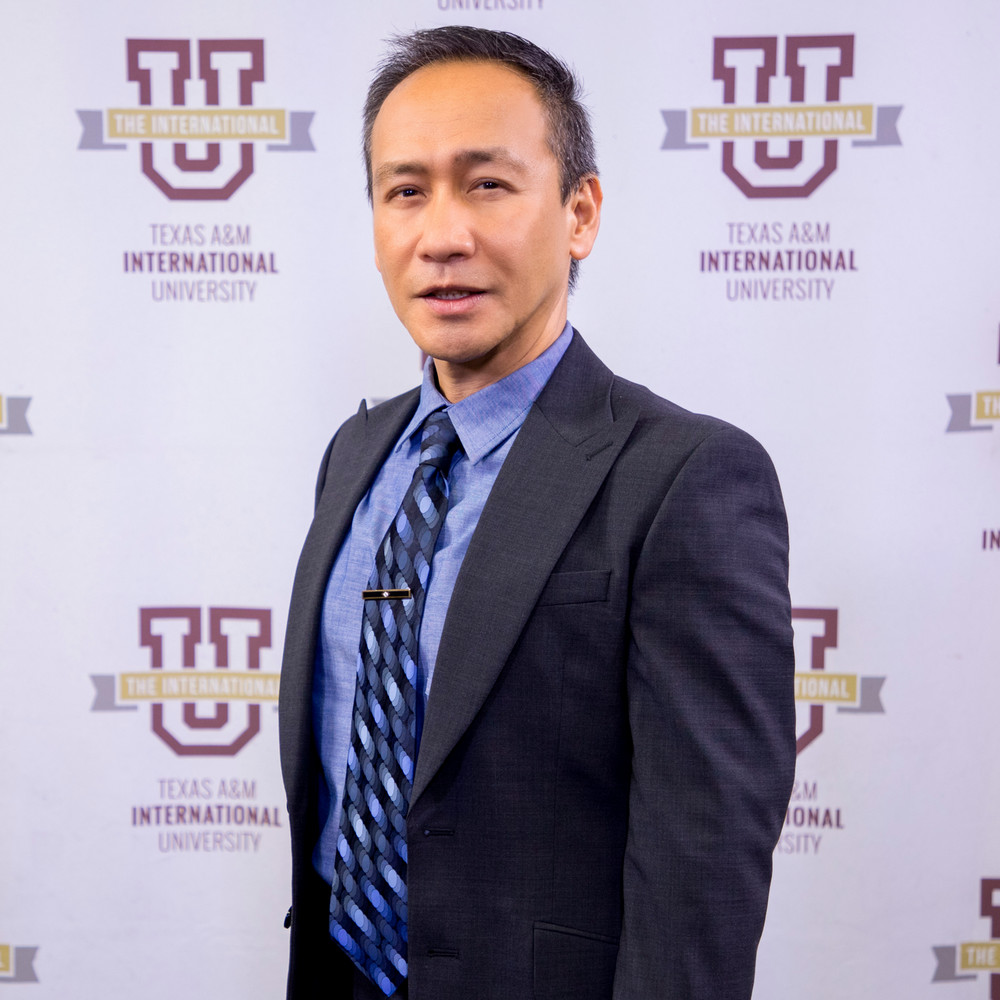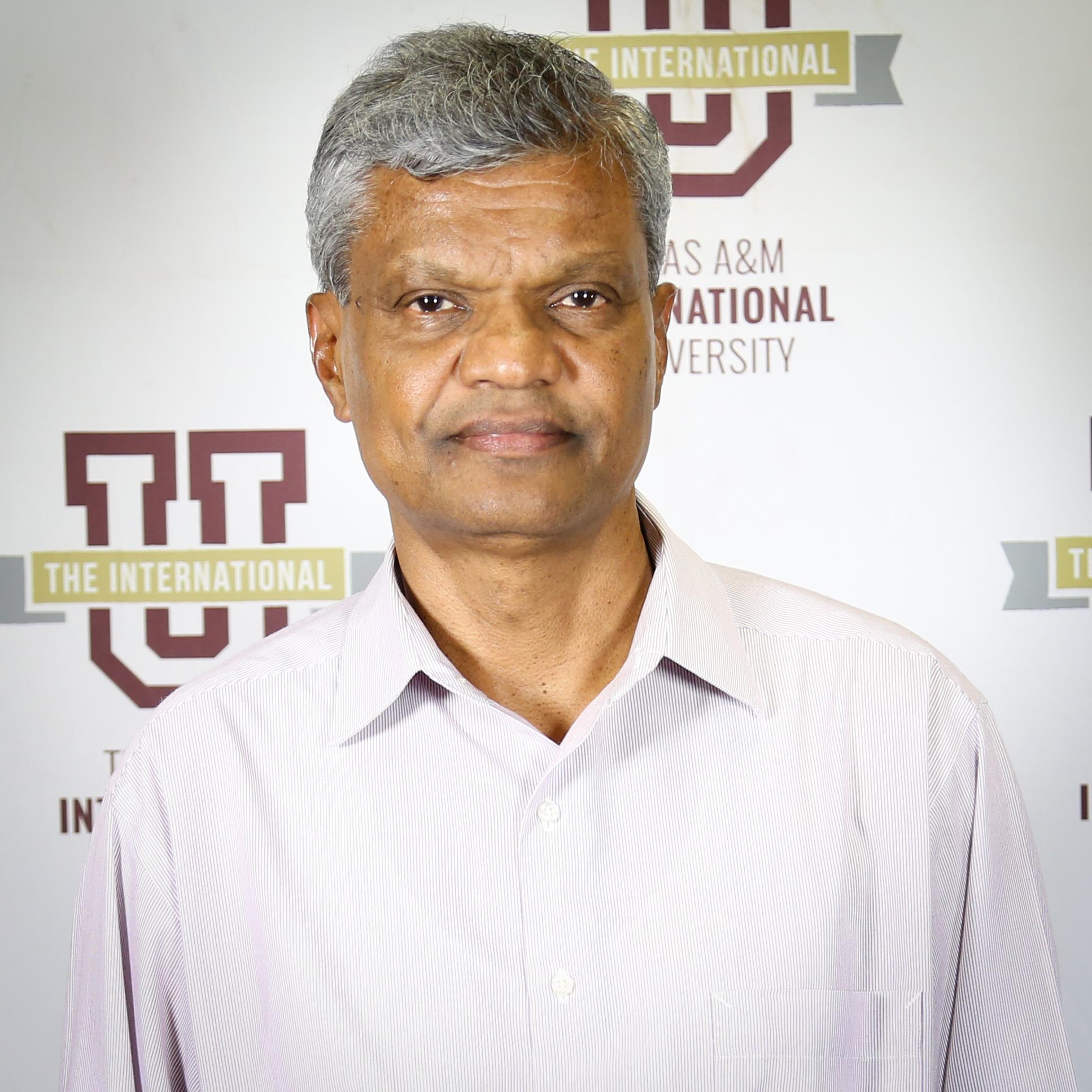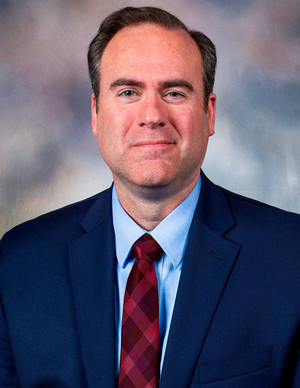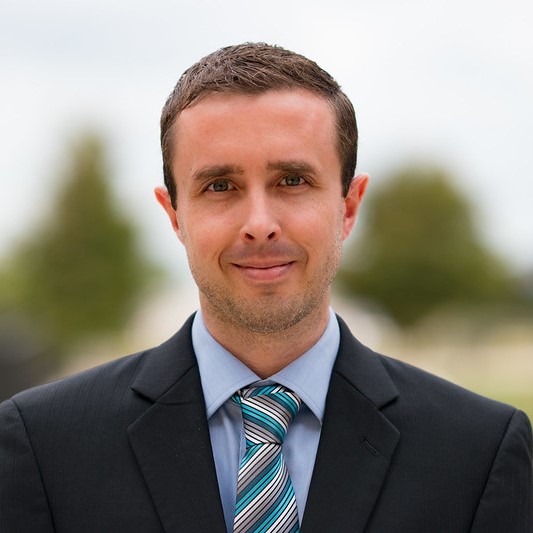TAMIU Professors Present Research Offering Structural, Administrative Analysis of Webb County

A research report prepared by Texas A&M International University (TAMIU) faculty that provides insight from a “Structural and Administrative Analysis of Webb County (2000-2020)” was presented to members of the Webb County Commissioners’ Court Monday, Aug. 11, 2025.
Researchers Dr. Peter F. Haruna, professor of Public Administration and director of the Master of Public Administration Program, and Dr. Mehnaaz Momen, professor of Public Administration, prepared the Report.
Dr. Haruna said he is confident the Report can be a helpful tool for Webb County.
“We hope you will find value in the Report as you continue leading the County into the 21st Century. We owe a great deal of gratitude to our colleagues at TAMIU and the County who supported us in data collection,” Dr. Haruna said.
Webb County Judge Tano Tijerina concurred with the value of the Report and offered his thanks to the researchers and those who made the Report possible.
“On behalf of Commissioners Court, I would like to extend our heartfelt thanks to TAMIU, Dr. Peter F. Haruna, Dr. Mehnaaz Momen, and all key players whose dedication made this comprehensive research report possible. Their insight and analysis will serve as an invaluable tool as we plan for Webb County’s continued growth and improvement. This collaboration reflects the power of academic partnership in shaping a stronger, more responsive local government.” Judge Tijerina said.
Dr. Momen said the Report project has three main objectives.
“One... to conduct a structural administrative analysis and address the challenges related to the County’s continuous growth and development; two, to identify gaps in understanding such a vast, rural County, especially regarding various stakeholders and processes in its governance and resource management, and three, to extract the lessons learned and provide suitable recommendations that we hope will improve governance,” Momen explained.
“We applied an interdisciplinary approach with qualitative methods, explored the County’s evolution, tapping into the tacit knowledge embedded in the culture and shared experience of officials, employees, and residents,” she continued, “...and what stands out is that the County has come a long way since its founding, but its fundamental culture and structure have not varied much, consistent with institutional theory and despite the emergence of incremental socioeconomic change.”
Dr. Haruna offered an overall assessment.
“To better position the County government to deal with challenges posed by and opportunities arising from advanced technology, population transitions, climate change, and geopolitical tensions, we recommend an integrative reform framework focusing on human resource development, as well as structural and administrative realignment,” he offered.
The Report’s Summary of Recommendations is divided into Administrative and Structural arenas and offers key recommendations for each.
In the Administrative arena, the Report recommends: an expanded lateral or horizontal communications channel to help smooth communications and information flow and enhance political-administrative relations to promote a shared purpose; building Community Center’s capacities over time and making them self-sufficient in developing community-oriented solutions to their well-being, and noting that as the County grows, precipitating the need for more departments and programs, coordinating and realigning job tasks to achieve greater robustness will become urgent.
In the Structural arena, the Report recommends: a long-term plan to invest in County-related education, research and broader knowledge infrastructure to create fertile conditions for employee growth, motivation, professionalization and performance; promoting knowledge and understanding of public engagement and trust-building by developing and publishing key performance indicators for the County’s core functions, and designing work-related systems that enable the acceptance, practical application, and adoption of new knowledge at a scale to bridge the gap between the County’s proposed reform policy and current practice.
The research conducted included a Webb County profile, background and literature review, design and methodology, presentation of findings, and opportunities to look back and move forward through recommendations. Appendices and tables explore various aspects of Webb County, such as its Community Centers, in addition to demographic and economic profiles, ad valorem tax rates and collections, and more.
Funding support for this research opportunity was made possible with support from the TAMIU Presidential Award, initiated by the late TAMIU president Dr. Pablo Arenaz, along with a counterpart contribution from the Webb County Commissioner’s Court.
This funding made it possible to hire TAMIU student research assistants who collaborated with the Report’s researchers. The Report grew from initial research performed by the late TAMIU professor of Public Administration, Dr. Carol Waters, and expanded the scope to include operations and clients’ feedback on County services.
Registration for the Fall Semester 2025 at TAMIU is underway now. Visit the Registration Hub for details. Fall classes begin Monday, Aug. 25, 2025.
For more on the University’s story, visit tamiu.edu or follow its social media channels: Facebook, Instagram, LinkedIn, YouTube and X.
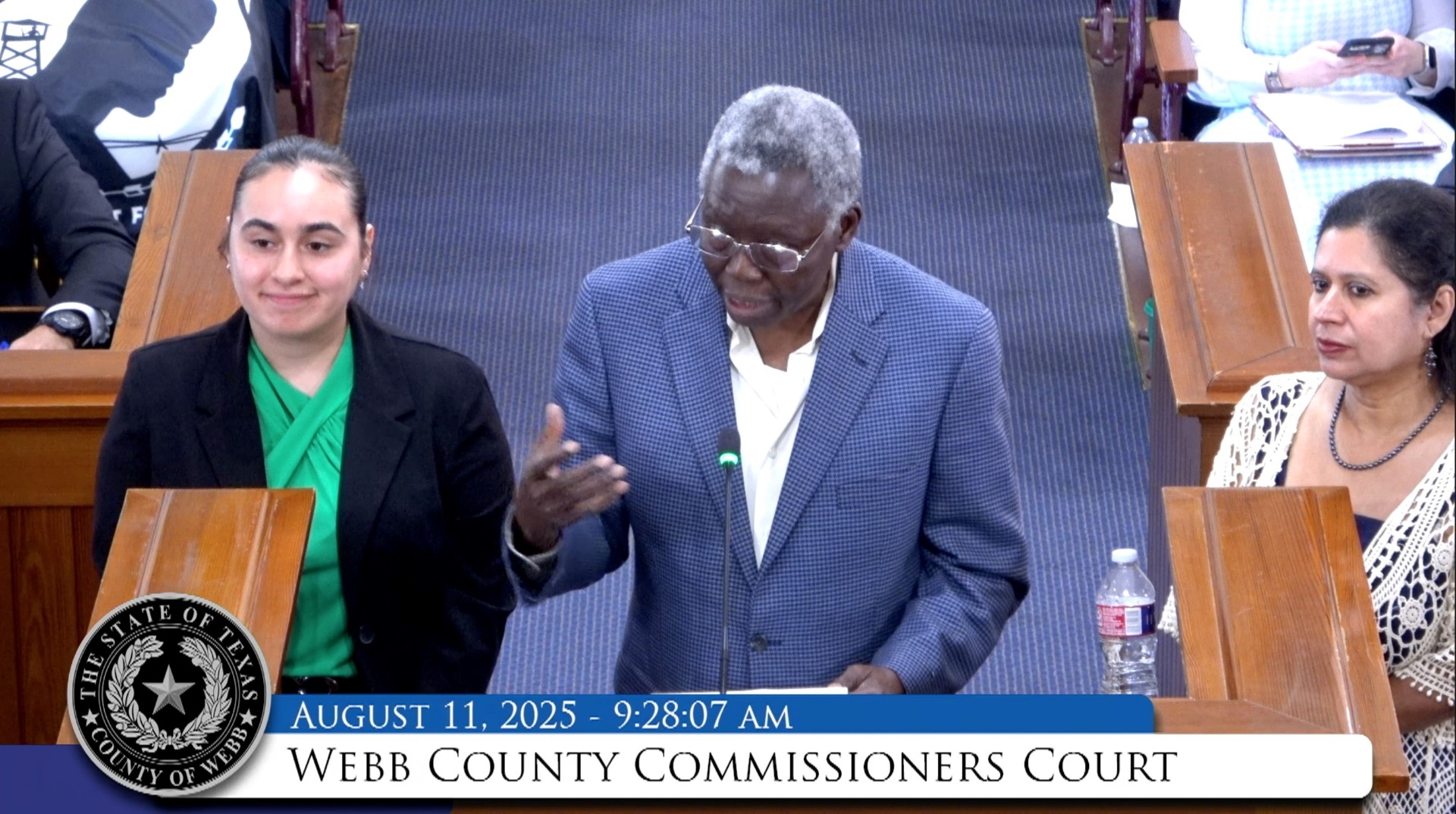 Dr. Peter Haruna, center, and Dr. Mehnaaz Momen, right, Texas A&M International University (TAMIU) Public Administration professors, present research findings and recommendations to the Webb County Commissioners Court. They were joined by TAMIU MPA graduate student and research assistant Victoria Alfaro.
Dr. Peter Haruna, center, and Dr. Mehnaaz Momen, right, Texas A&M International University (TAMIU) Public Administration professors, present research findings and recommendations to the Webb County Commissioners Court. They were joined by TAMIU MPA graduate student and research assistant Victoria Alfaro.
